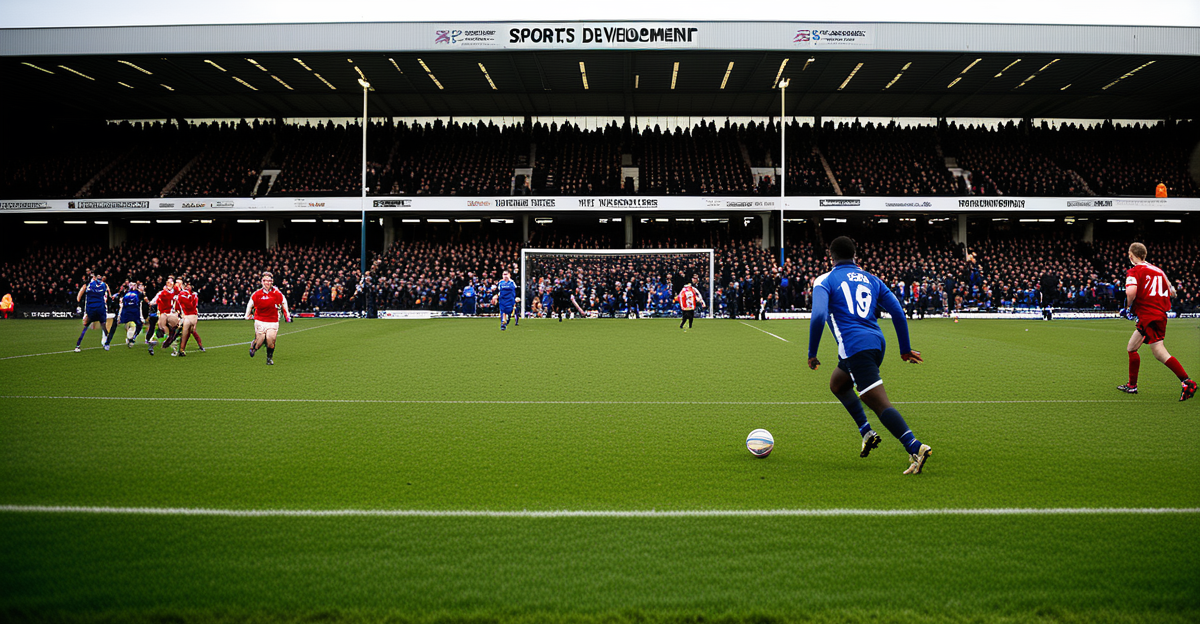The Role of Sports Culture in Building Social Cohesion
Sports culture in the UK plays a crucial role in fostering social cohesion by bringing together diverse individuals through shared interests. Local community clubs act as vital hubs where people from different backgrounds unite, sparking meaningful connections and solidifying community bonds. These clubs often serve as common spaces where trust and friendships grow, which strengthens overall neighborhood solidarity.
Grassroots initiatives further enhance inclusive participation, ensuring sports are accessible to all regardless of age, ethnicity, or economic status. For example, community football leagues and local cricket teams invite involvement from a broad spectrum of residents, helping to reduce social divides.
This might interest you : Why Do Certain UK Sports Receive More Funding Than Others?
National sports events amplify this effect by fostering collective pride and shared experiences that resonate across neighborhoods. The excitement around major football tournaments or rugby matches encourages communal gatherings, discussion, and celebration, reinforcing a sense of belonging. This dynamic of UK sports culture not only boosts morale but helps weave a tighter social fabric within communities, underlining how sports serve as powerful tools for building lasting social cohesion.
Health Benefits Driven by Sports Engagement
The health impact of sports in the UK is profound, with community sports programs playing a central role in promoting physical activity. Accessible sports facilities encourage participation across all ages, fostering healthier lifestyles by making exercise an enjoyable, routine part of daily life. Regular engagement in sports activities helps to reduce risks related to chronic diseases such as heart conditions, diabetes, and obesity.
Also to discover : What role does social media play in promoting UK sports?
Beyond physical benefits, involvement in community sports also addresses social isolation. Group activities create social networks that enhance mental well-being, reducing feelings of loneliness and improving emotional resilience. The shared experiences within community sports programs help participants to feel connected and supported, contributing to overall psychological health.
Public health campaigns linked to sporting events leverage the popularity of UK sports culture to promote fitness and wellness messages effectively. For instance, major tournaments often coincide with initiatives encouraging people to be more active, capitalizing on the collective enthusiasm to inspire lifestyle changes. These campaigns highlight, clearly, how sports operate not only as entertainment but also as catalysts for healthier, more cohesive communities.
Youth Engagement and Development in UK Sports
Youth sports engagement in the UK is a vital pathway for fostering youth development through skill-building and teamwork. Participation in UK sports clubs offers young people opportunities to acquire essential life skills such as discipline, communication, and resilience. These qualities extend beyond the playing field, equipping youth with tools beneficial for education and future employment.
Coaches in UK sports clubs act as mentors and positive role models, guiding youth not only in athletic performance but also in personal growth. The mentorship provided helps young athletes develop leadership qualities and build self-confidence, which is crucial during adolescence.
Moreover, youth inclusion through sports serves as an effective strategy in tackling antisocial behaviour. By engaging young people in structured, goal-oriented activities within community clubs, there is a reduction in negative behaviours and an increase in social responsibility. This inclusive environment strengthens social ties and contributes to safer, more cohesive communities, demonstrating how UK sports culture supports youth in becoming well-rounded, active members of society.
Economic Influence of UK Sports on Local Communities
The economic growth sports generates in local UK communities is significant and multifaceted. Sports organizations and events create numerous job opportunities, ranging from event management and coaching to hospitality and retail. These roles support livelihoods while stimulating regional employment rates.
Investment in sporting infrastructure often sparks regeneration in local areas, transforming neglected spaces into thriving hubs that attract visitors and residents alike. For example, upgrading stadiums and facilities can revitalize neighborhoods, boosting local pride and economic activity concurrently.
Small businesses benefit too, with increased foot traffic around sports venues fueling demand for services such as food outlets, merchandise shops, and transport providers. This ecosystem nurtures entrepreneurial opportunities directly linked to community sports activities.
Community sports funding plays a pivotal role in sustaining this economic influence. By underwriting grassroots projects and local sports clubs, funding ensures ongoing activity that supports both sports participation and economic health. Thus, the interplay between economic growth sports, community sports funding, and local economies highlights how UK sports culture extends beyond recreation into vital economic development channels.
The Role of Sports Culture in Building Social Cohesion
UK sports culture plays a pivotal role in strengthening community bonds by uniting people from diverse backgrounds through local sports clubs. These community clubs act as accessible hubs where shared interests encourage interaction, fostering trust and mutual respect. Such grassroots initiatives emphasize inclusive participation, welcoming individuals regardless of age, ethnicity, or socioeconomic status, thus reducing social barriers.
National sports events amplify social cohesion by creating shared experiences that resonate widely. From the excitement around Premier League matches to rugby internationals, neighborhood gatherings and collective celebrations bring communities closer. These events promote a sense of belonging that extends beyond the pitch, reinforcing neighborhood ties and community pride.
By nurturing both everyday interaction at local clubs and large-scale solidarity during national events, UK sports culture functions as a powerful agent for social cohesion. It transforms sports from mere recreation into a communal experience that supports connected, resilient societies grounded in shared identity and cooperation.
The Role of Sports Culture in Building Social Cohesion
UK sports culture acts as a powerful vehicle for fostering social cohesion by creating strong community bonds centered around local sports activities. Community clubs serve as key gathering points where diverse groups come together, breaking down social barriers through shared sporting experiences. These clubs promote inclusive participation by welcoming individuals regardless of background, age, or ability, which strengthens trust and mutual understanding within neighborhoods.
Grassroots initiatives emphasize accessibility and engagement, ensuring that sports are open to all, thus reinforcing social ties beyond the field. This inclusion directly contributes to reducing isolation and building a collective identity among community members.
National sports events further unify communities by providing shared moments of excitement and pride. Events like football tournaments or rugby internationals inspire neighborhood gatherings, where collective celebrations enhance a sense of belonging and reinforce existing social networks.
Through local clubs and large-scale events, UK sports culture develops both everyday interaction and communal pride, making it a vital force for nurturing connected, resilient communities grounded in shared identity and cooperation.
The Role of Sports Culture in Building Social Cohesion
UK sports culture is instrumental in creating robust community bonds by leveraging the unifying power of local sports clubs. These clubs act as accessible spaces where people from varied backgrounds come together, fostering interpersonal connections that enhance social cohesion. Through shared sporting activities, community members develop trust and understanding, which are essential for stronger neighborhood ties.
Grassroots initiatives within UK sports culture prioritize inclusive participation by actively removing barriers to involvement. These programs ensure that sports are welcoming to all ages, abilities, and socioeconomic groups, promoting equality and enhancing cohesion. This inclusivity not only bridges social divides but also stimulates ongoing engagement and support within communities.
National sports events play a critical role in reinforcing community bonds by bringing people together to celebrate common passions. The shared excitement surrounding major tournaments or matches encourages collective experiences that deepen neighborhood solidarity. These events often act as focal points for community pride, allowing diverse populations to unite under a shared identity, strengthening the overall fabric of social cohesion through UK sports culture.






